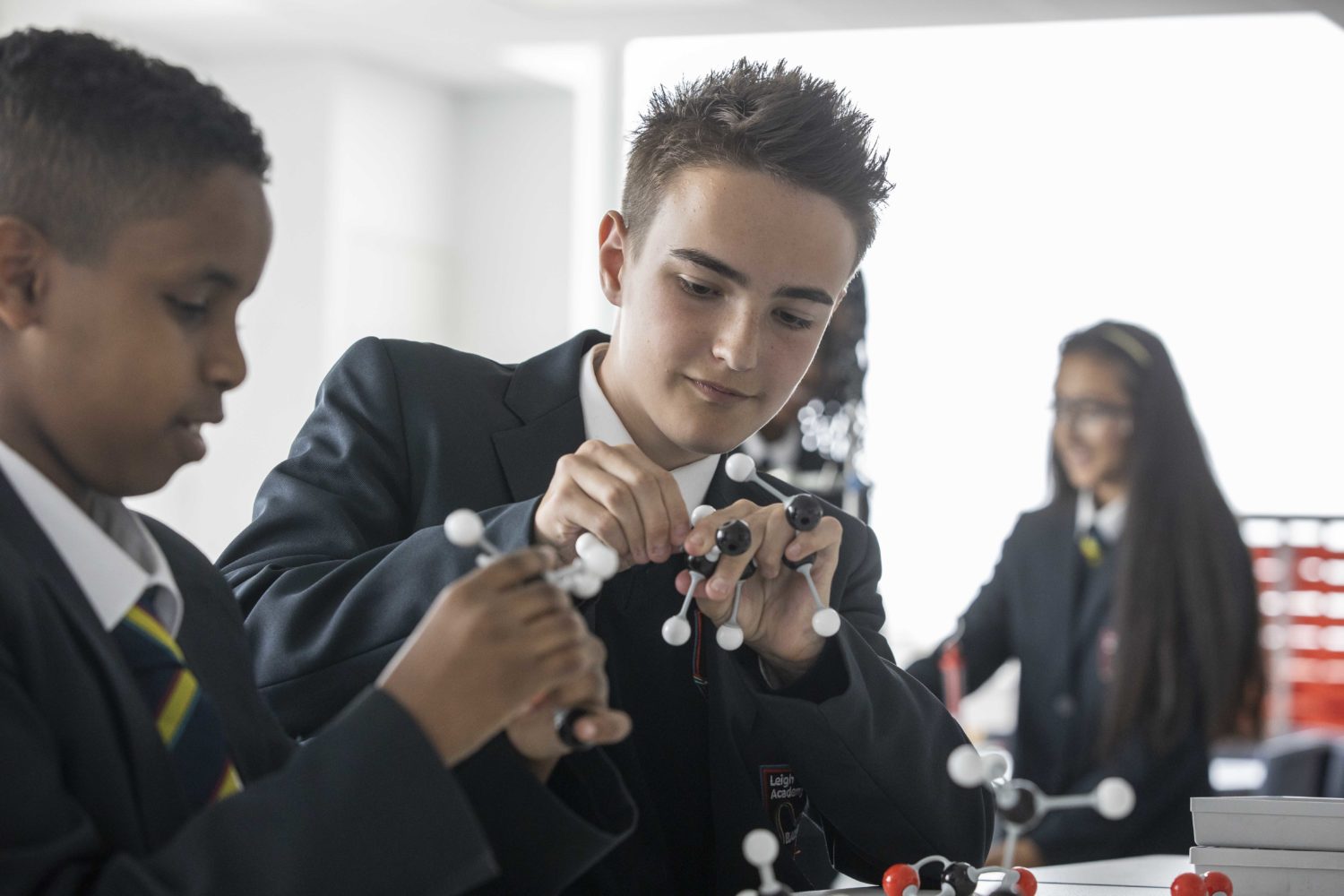Our KS3 curriculum is three years in length and delivered through the International Baccalaureate Middle Years Programme (IBMYP) framework. This grants us the freedom to be outward facing in our selection of curriculum content; it also encourages conceptual understanding, by connecting students’ prior learning to current content; finally, it provides a criterion-referenced assessment framework, which means students’ work is evaluated against the curriculum (rather than the work of their peers) to identify strengths and misconceptions.
At KS3, our taught curriculum is delivered in one hour blocks, with 24 lessons per week. Students study the full range of National Curriculum subjects at Key Stage 3, including: Language and Literature, Maths, Science, Language Acquisition (Spanish), Individuals and Societies (Geography, History and RE), the Arts (Art, Drama and Music), Design (DT and Computing) and Physical Education. Learning is supported by a weekly lesson entitled LAB Learner, which supports the IBMYP approaches to learning, SMSC and PSHE tutor time curriculum.
Across Key Stage 3, LAB places great importance on the development of reading skills and has a 30-minute daily reading expectation for all students. This includes 5 minute silent reading at the start of every lesson, with progress monitored and tracked through the Accelerated Reader programme.
Our KS4 curriculum is built on the aforementioned principles – of international mindedness and conceptual understanding – which, in accordance with the IBMYP, we have embedded at KS3. It is for this reason that, excepting those few cases where doing so would unfairly disadvantage students’ chances to achieve elsewhere, the English Baccalaureate (EBacc) is studied by all in KS4 at LAB. This means that, in addition to the ‘core’ subjects (of Language and Literature, Maths and Science), students select an Individuals & Societies subject (Geography or History) and an additional language (Spanish). The EBacc offers our students access to greater opportunities in further education, and the full range of employment options when they leave secondary school. It also ensures students are not narrowing their options too early.
At KS4, in addition to the EBacc, our year 9 students presently have the option of choosing any two of the following subjects: Computer Science, Design and Technology, Drama, Fine Art, Music, Photography, Physical Education, Religious Studies and Separate Science. This streamlined offering builds on the subjects students have studied at KS3, therefore encouraging greater depth of understanding; whilst also ensuring consistency of high-quality provision across both key stages (a broader options package is something we intend to explore in future years, as Covid-19 based restrictions lift and allow for more rigorous recruitment of KS4 subject specialists).
In Key Stage 5 (Post-16) there are a wide range of subjects on offer, in both academic and vocational pathways, split between the IB Diploma Programme (IBDP) and the IB Careers-Related Programme (IBCP).



